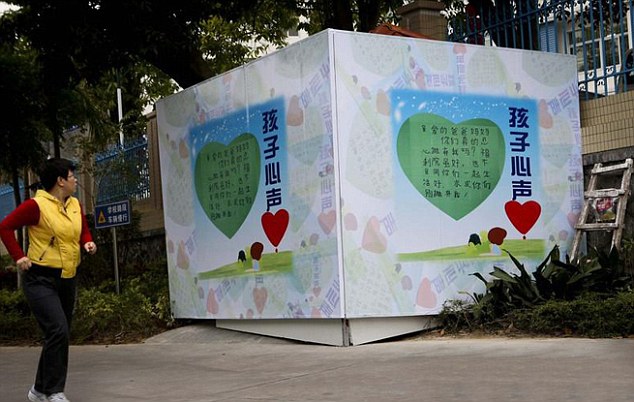The cultural preference for boys and healthy children in China is so prevalent that a baby “postbox” to save abandoned babies from infanticide has had to close because of overwhelming demand. News reports indicated as many as three babies a day were left at the “postbox” — most of them ill or having some sort of disability.
The baby postbox is one of many such baby dropoff points in China for collecting abandoned babies who are physically or mentally handicapped or are just unwanted by their mothers. But after only three months in operation, it has received more than 250 babies — more than organizers can handle.
 The postbox in Guangzhou City, Guangdong Province, is one of 25 in China but the project has been forced to close after receiving 262 babies in 90 days.
The postbox in Guangzhou City, Guangdong Province, is one of 25 in China but the project has been forced to close after receiving 262 babies in 90 days.
The London Daily Mail provides the sad details:
The latest project in Guangzhou City in Guangdong Province in southern China follows on from 25 similar projects that have opened up in 10 other Chinese provinces including Tianjing, Jiangsu, Shaanxi, Guizhou, Fujian, Inner Mongolia, and Heilongjiang.
But the Guangdong ‘baby flap’ project has now been forced to temporarily close after 262 mostly disabled babies were handed in within the first three months of the scheme operating.
Xu Jiu, 47, director of the Guangzhou Welfare Center, said their baby flap project was massively oversubscribed in comparison to other regions.
He said: ‘The project in Inner Mongolia only received four abandoned babies 10 months after its establishment and Shijiazhuang received 180 babies in two and a half years after its establishment.
‘Yet here in Guangzhou we received 262 babies in 90 days.’
CLICK LIKE IF YOU’RE PRO-LIFE!
One feature almost all of the abandoned babies have in common is that they are in some way either ill or disabled.
It includes children with cerebral palsy, Down’s syndrome and congenital heart disease.
Xu Jiu added: ‘We have learned a lot from this even if we stop it now, it shows us that we need to offer better child welfare systems and in particular the assistance and support for families with severely disabled children.







